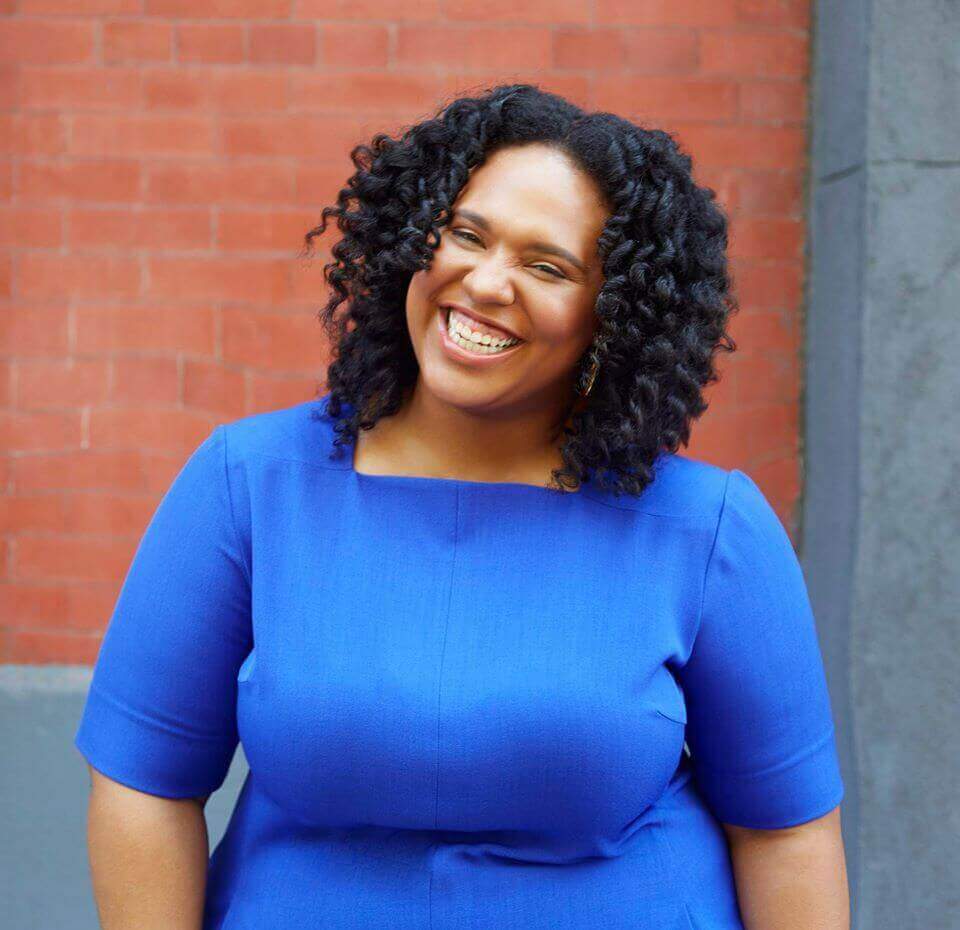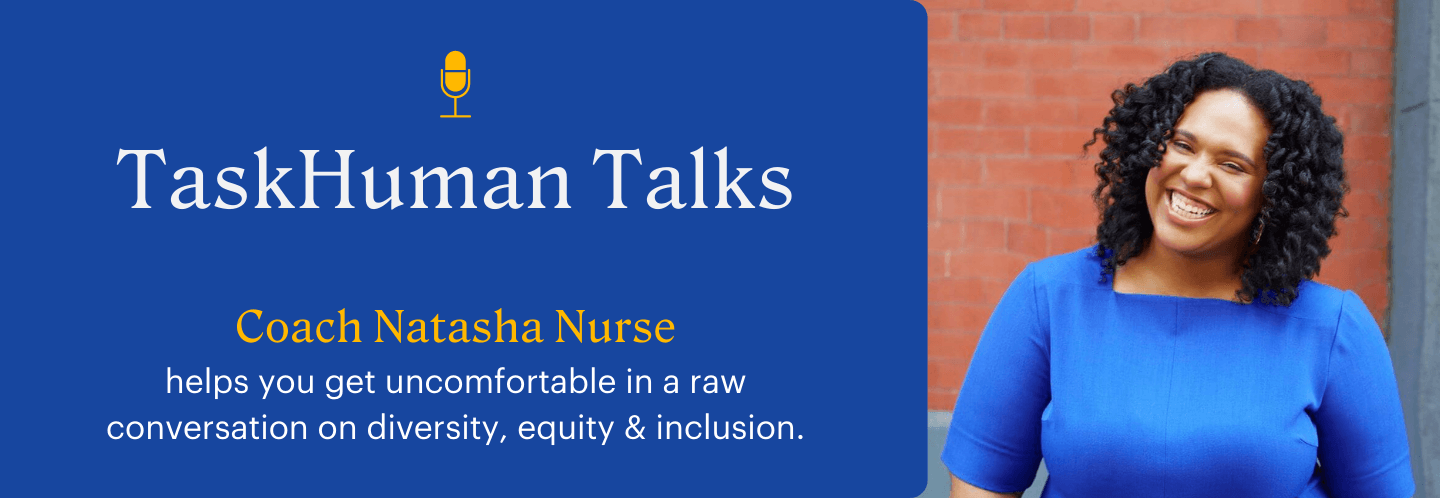To Embrace Diversity and Inclusion, You May Need to Get Uncomfortable



Take a quick look around you. Are you surrounded by the same type of people in your personal and work life? If you want to improve the diversity of your social and professional circles, you’re going to need to get a little uncomfortable, says TaskHuman Coach Natasha Nurse. She is a Diversity, Equity, and Inclusion (DEI) expert, and she helps people and organizations recognize their own opportunities and roadblocks in creating a diverse and inclusive workplace.
Natasha explains how she thinks people and organizations can create real diversity and inclusion progress in a recent episode of the podcast TaskHuman Talks. Here are the key takeaways:
In our current political climate, inclusion and diversity have taken a higher priority to people, workplaces, and our overarching society. We have an opportunity to create deep, lasting change that gives more of an equal opportunity for people to be heard and to do the work that promotes well-being at every level.
To do that, Natasha thinks asking people what they need is key. When we check in with one another, we enable the opportunity for others to voice concerns and offer solutions.
“Again, not just like a problem, a dump, but also what is the solution and empower people to come up with their own solution,” she says. “I really love when people feel like they’re bought into how they create change and implement change in their workplace.”
To build and support a diverse and inclusive environment, we also need to cultivate diversity in our personal lives. Natasha thinks you can do that by being intentional about who is around you and what media you consume.
When you only surround yourself with like-minded people and content, you never challenge your own thinking. You may think you are being inclusive, but you may not be.
“Ultimately, you can, you can have a resolve, but it’s about being open-minded” Natasha says. “It’s about coming from a place of empathy. It’s also coming from a place of openness, right? I want to hear you. I want to see you and I may or may not agree with every point, but I’m willing to have the conversation. If people are willing to have a conversation, you can accomplish anything.”
This is where it could start to get uncomfortable. In order to grow, to be more inclusive, we need to confront our own bias, which can be difficult. Understanding our biases means we give ourselves the power to do something about them. We can challenge them and find support for other views.
Natasha explains that learning someone else’s perspective doesn’t mean we need to give up our own views. It just means we are holding space for them to have their own ideas too.
Part of understanding equity means recognizing that privilege exists. This idea can be difficult for many people because it seems to negate their own struggles. Natasha is quick to explain that isn’t what “privilege” means.
Privilege means that your struggle didn’t come because of your race, gender, sexual orientation, identity, or any other delineating factor.
But admitting you have privilege also can mean you have power to help, Natasha says. If you use your privilege to help others, then you’re supporting equity.
“I think it’s well, if I have the privilege of X, then how can I help Y?” she says.
While Natasha cautions away from trying to rank individual struggles, working to practice gratitude can help you see where you have a privilege that someone else may not. Ultimately, Natasha says, learning to love ourselves will help us be able to lift up others too.
“So it’s like, love yourself the way that you love others,” she says. “And maybe just maybe your life will be a reflection of what it should be and what you deserve and what you want it to be.”
To get all of Natasha’s wisdom and insight, listen to the entire conversation here.
If you’re ready to have real conversations about how you can recognize your bias, challenge your thinking, or improve your organization’s DEI, Natasha is here to help.